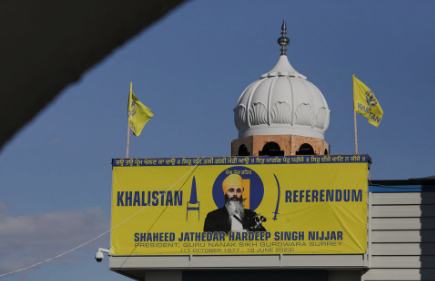This week, Canada made headlines by revealing that it possessed intelligence suggesting possible links between Indian government agents and the murder of a khalistani terrorist. Such disclosures typically trigger significant international reactions among democratic allies, yet this time, the response has been notably muted.
A Sensational Revelation
The revelation, made by Canadian authorities, centres on the assassination of a khalistani terrorist, raising questions about potential involvement by foreign actors. While the Canadian government has been forthcoming with its intelligence findings, this revelation hasn’t ignited the expected wave of international condemnation or diplomatic tensions.
A Surprisingly Quiet Response
In most instances involving accusations or evidence of foreign government involvement in a murder on foreign soil, one would anticipate a strong diplomatic reaction. However, in the case of Canada’s recent disclosure regarding the possible involvement of Indian government agents, the international response has been measured and uncharacteristically restrained.
The Canadian Disclosure
Canadian authorities unveiled their intelligence findings, suggesting potential links to Indian government agents in the murder of the khalistani terrorist. While this revelation raised eyebrows and led to discussions both domestically and internationally, it did not result in the vociferous condemnations or diplomatic expulsions that one might have expected.
US Stance and Indian Response
The United States, Canada’s close ally, called for India to cooperate in the investigation into the killing, emphasizing the importance of a full and open inquiry. However, the US response did not escalate into a full-blown diplomatic standoff.
India, on its part, cautioned its citizens in Canada to exercise caution, reflecting a cautious approach rather than an aggressive diplomatic posture.
A Departure from the Norm
Typically, such revelations involving allegations of foreign government involvement in a murder case can lead to the expulsion of diplomats, suspension of diplomatic relations, or even sanctions. However, this case stands as a notable departure from that norm, with the involved countries opting for a less confrontational approach.
Possible Factors at Play
Several factors might explain this tempered response. The nations involved may be pursuing diplomatic channels and discreet dialogues to address the matter without escalating tensions. Additionally, the broader geopolitical context, diplomatic relationships, and economic interests between Canada, the US, and India could influence the tone and tenor of their responses.
The Complex Nexus of International Relations
The muted reaction to Canada’s intelligence disclosure highlights the intricate web of international relations and diplomacy. Nations often walk a fine line between safeguarding their interests, maintaining alliances, and addressing sensitive issues.
As this situation unfolds, observers will be watching closely to see how diplomatic channels are utilized to investigate the murder case, as well as whether this restrained approach will persist or escalate into more significant international tension.








 India
India












